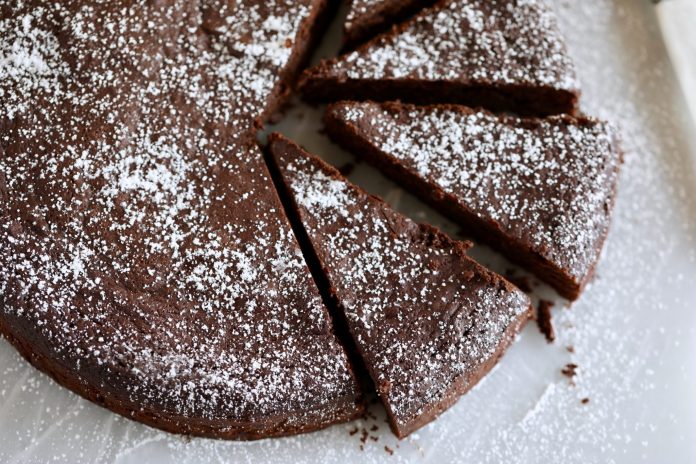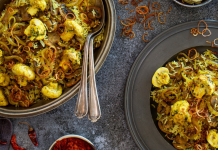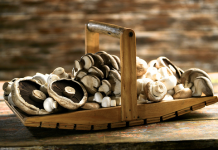With Valentine’s Day just around the corner, have you wondered how the connection between love and chocolates was made and how the tradition of giving chocolates on Valentine’s Day was formed?
While the history of Valentine’s Day stretches back to the Roman era, the addition of
chocolate as the staple fixture for the day to celebrate love is more recent.
It was in the mid 1800s that Richard Cadbury was looking for a way to utilise cocoa butter
extracted during the making of chocolate liquor and came up with the humble chocolate bar. Previously, chocolate was an expensive item that only the wealthy were able to buy, but Cadbury was able to produce chocolate that was affordable to all. His next step was to
create beautiful boxes – decorated with cupids and roses – to entice buyers, and it was these that became the must-have Valentine’s Day gift.
Besides the great taste and texture and the attractive wrappings, there are other reasons
why chocolate is linked with Valentine’s Day:
• Chocolate has been deemed an aphrodisiac since the time of the Aztecs, as it was believed to contain a substance that inflames desire and make the beloved one more open to romance. According to science, there might be some truth in this, as recent studies show that those who eat chocolate show more desire for romance as compared with those who
don’t. This might be because chocolate releases brain-soothing chemicals which increase energy and desire levels. Chocolate is proven to produce a natural high that can elevate mood, which is often equated to feeling in love.
• Chocolate comes from the cocoa tree, which is also known as ‘Theobroma cacao’ which is
a Greek way of saying ‘food for the gods’. In the ancient Maya civilisation, for which
the cacao god was sacred, the Aztecs used cacao beans as currency and as a food for only the privileged. Thus, if chocolate was deemed fit for the gods, then it had to be the perfect gift for a loved one.
• It’s also a fact that chocolates have a huge physiological and emotional effect on people. Giving chocolate is not just a sign of love but also given as ways to express delight, initiate desire, expresses your apologies and rekindle friendship. Or even given just to simply uplift the mood as it’s a powerful mood enhancer.
What better way to delight your sweetheart this Valentine’s Day than with more than a box of chocolates, but rather a chocolate creation made by you to show just how much you really care! With that in mind, here are five chocolate-themed recipes – suggested by chefs from Capsicum Culinary Studio – that are guaranteed to impress your loved one.
Chocolate and Raspberry Tarts
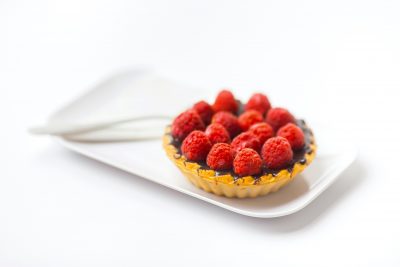
Ingredients:
- 8 mini tartlet moulds
- 200g 70% dark chocolate, chopped
- 60g unsalted butter
- 90g brown sugar
- 60ml cream
- 3 eggs
- 25g all-purpose flour
- 250g fresh raspberries
Ganache:
- 300g 70% dark chocolate
- 250ml cream
Method:
Pre-heat oven to 150°C. Place the chocolate, butter, sugar and cream in a saucepan over
low heat and stir until melted. Remove from stove. Place eggs and flour in a bowl and whisk until well combined. Slowly mix the eggs and flour into chocolate mixture a little at a time, making sure the chocolate mixture is not too hot or it will cook the eggs. Pour into individual tartlet moulds and bake for 35-40 min.
For the ganache: Place chocolate and cream in a saucepan over low heat and stir until
melted. Spoon over tarts. Once cooled top with fresh raspberries
Flourless Chocolate Cake
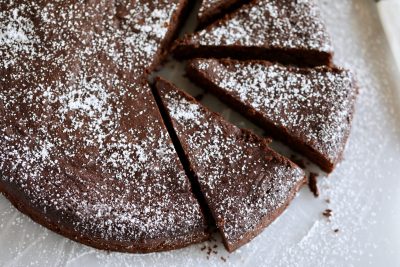
Ingredients:
- 675g dark chocolate
- 350g salted butter
- 9 eggs
- Spray & Cook
- Cocoa powder for dusting
Method:
Preheat oven to 220°C. Spray a cake tin with Spray & Cook and dust with the cocoa powder, making sure to cover the entire surface area of your tin. In a bowl over a double boiler, whisk eggs over a medium to low heat until the mixture starts to take on a custard-like consistency. Make sure you are whisking constantly and that the water in the pot never
makes contact with the base of the bowl. Your sabayon is ready once there are no longer
bubbles visible in the custard. Strain the egg mixture through a fine mesh sieve and set
aside. Melt the chocolate and butter in a separate bowl over the double boiler, stirring occasionally. Stream the melted chocolate mixture into the sabayon while whisking until
both mixtures are well incorporated. Strain again. Pour the mixture into your prepared tin
and gently tap the tin on your counter to level out the mixture. Place the tin in a deep tray
and pour hot water that it comes to about halfway up the height of the tray. Cover the tin
with foil and bake for 10 minutes. Remove the foil and bake for a further 5-10 ten minutes.
The cake should be set but be slightly wet in the centre, you can use a skewer to check.
Remove from the water bath and allow to cool to room temperature. Cover and set in the
fridge for at least 8 hours before serving. Warm the exterior of the tin by dipping it in boiling water to help remove the cake from the tin before slicing. Use a knife dipped in hot water to slice the cake.
Chef’s Note: This flourless cake goes well with vanilla ice cream, peanut brittle and caramelised banana, or Chantilly cream with a berry compote.
Red Velvet Chocolate Chip Cookies
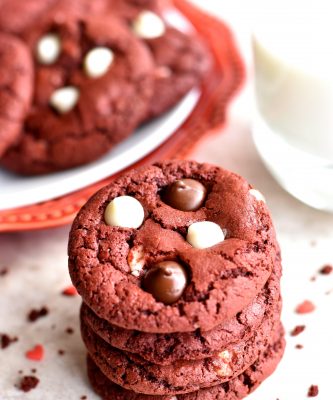
Ingredients:
- 1½ cups all-purpose flour
- 2 tbs cocoa powder
- 1½ tsp cornstarch
- ½ tsp bicarb of soda
- ¼ tsp salt
- 125g unsalted butter (at room temperature)
- ½ cup of brown sugar
- ¼ cup of white sugar
- 1 large egg
- 1 tsp vanilla essence
- 2-3 tsp red food colouring
- ¾ cup chocolate chips (dark, milk or white)
Method:
In a large bowl, mix the flour, cocoa powder, corn starch, bicarb and salt. In a separate
bowl, cream the butter and sugars together until light and fluffy. Beat in the egg, vanilla and food colouring. Add the dry ingredients to the egg mixture and mix until fully combined. Stir in the chocolate chips. Cover the bowl with plastic wrap and refrigerate for 3 hours or overnight. When ready to bake, preheat the oven to 180°C. Line 2 baking trays with baking paper. Scoop equal size balls with a tablespoon and place in the lined tray about 5cm apart. Bake the cookies for 7-10 minutes. Remove from the oven, cool on the tray for about 10 minutes before transferring to a wire rack.
Ginger Chocolate Fudge
Ingredients:
- 115g unsalted butter, plus extra for greasing
- 6 pieces of ginger (in syrup)
- 300ml full cream milk
- 150g plain milk chocolate
- roughly chopped
- 450g granulated sugar.
Method:
Grease a square shallow dish. Dry the syrup off the pieces of stem ginger on kitchen paper,
then chop finely. Pour the milk into a large, heavy-based saucepan and add the chocolate,
butter, and sugar. Heat gently, stirring all the time, until the chocolate and butter have
melted, and the sugar has completely dissolved. Bring to the boil and boil for about 10–15
minutes stirring occasionally, until a little of the mixture, when dropped into a small bowl of
cold water, forms a soft ball when rolled between the fingers. Remove the saucepan from
the heat and stir in the chopped ginger. Leave to cool for 5 minutes, then beat the mixture
vigorously with a wooden spoon, until thick, creamy, and grainy. Immediately pour the
mixture into the prepared dish, leave to cool, then mark into small squares. Leave the fudge until cold and set, then cut up the squares with a sharp knife.
Chocolate Truffles
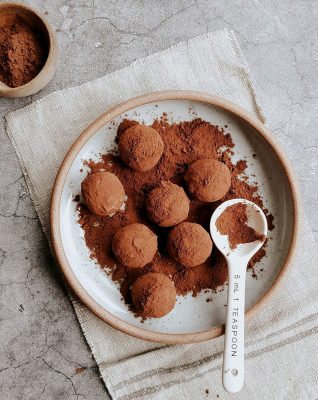
Ingredients:
- 175g milk chocolate, chopped
- 3 tbs butter, unsalted
- 4 tbs icing sugar
- 50g ground almonds (optional)
- 50g grated chocolate (any kind)
Method:
Melt the milk chocolate in a heatproof bowl set over a saucepan of gently simmering water.
Add the butter and stir until melted. Stir in icing sugar and the ground almonds (optional).
Leave the mixture in a cool place until firm enough to roll into balls. Place the grated chocolate on a plate and roll the truffles in the chocolate to coat them thoroughly. Place the truffles in mini muffin cups and chill in the refrigerator before serving.

